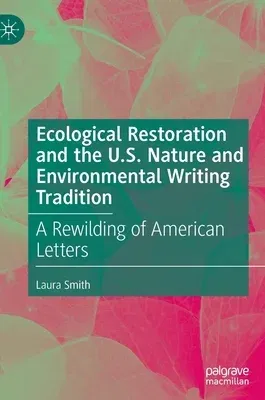Laura Smith
(Author)Ecological Restoration and the U.S. Nature and Environmental Writing Tradition: A Rewilding of American Letters (2021)Hardcover - 2021, 12 January 2022

Qty
1
Turbo
Ships in 2 - 3 days
In Stock
Free Delivery
Cash on Delivery
15 Days
Free Returns
Secure Checkout

Print Length
348 pages
Language
English
Publisher
Palgrave MacMillan
Date Published
12 Jan 2022
ISBN-10
3030861473
ISBN-13
9783030861476
Description
Product Details
Author:
Book Edition:
2021
Book Format:
Hardcover
Country of Origin:
NL
Date Published:
12 January 2022
Dimensions:
21.01 x
14.81 x
2.24 cm
ISBN-10:
3030861473
ISBN-13:
9783030861476
Language:
English
Location:
Cham
Pages:
348
Publisher:
Weight:
598.74 gm